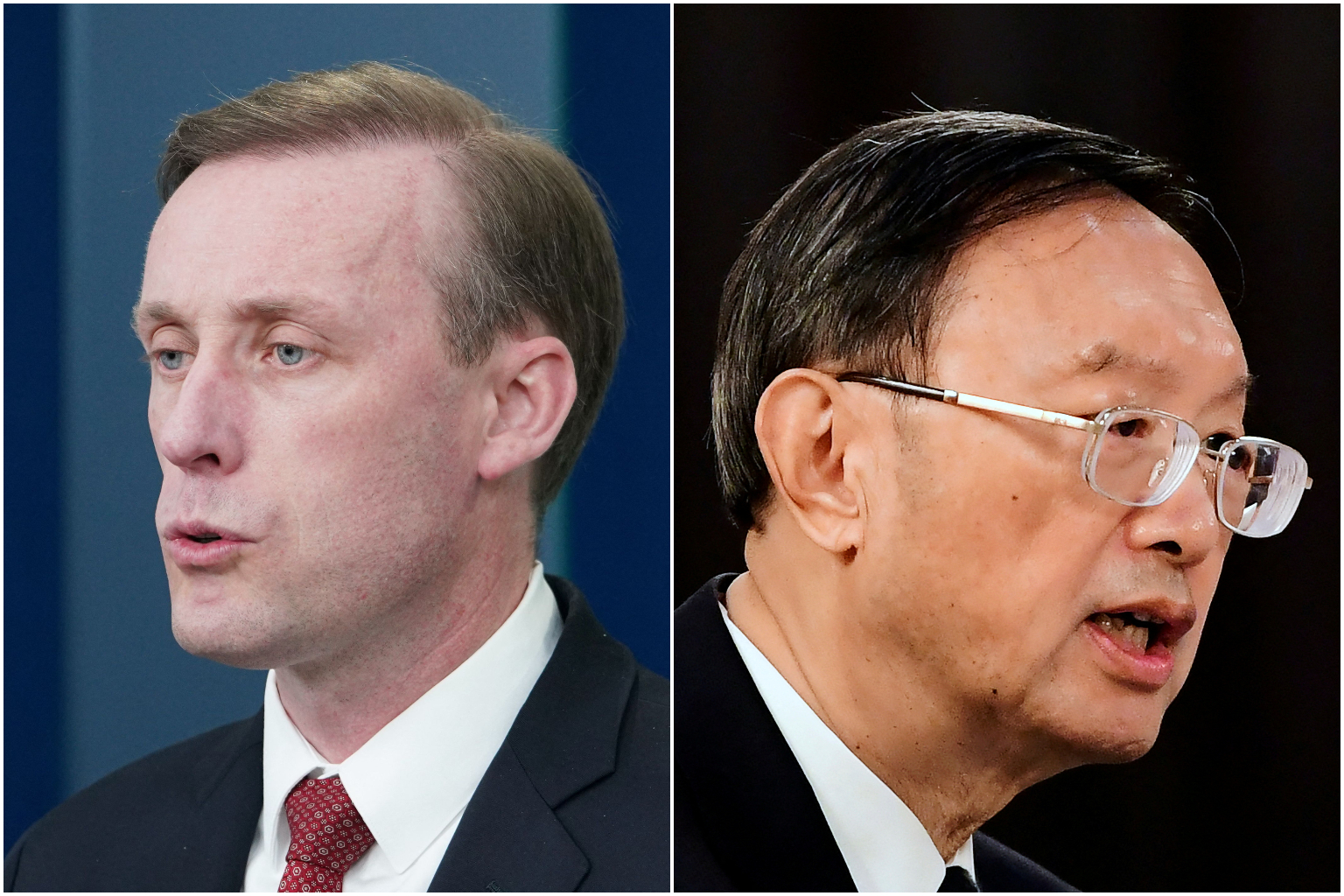Open lines of communication important: US, China
Sign up now: Get ST's newsletters delivered to your inbox

US National Security Adviser Jake Sullivan met China's top diplomat Yang Jiechi in Luxembourg on June 13, 2022.
PHOTOS: AFP, REUTERS
Follow topic:
WASHINGTON – US National Security Adviser Jake Sullivan met China’s top diplomat Yang Jiechi on Monday (June 13) in Luxembourg, with both sides acknowledging the importance and benefits of maintaining open lines of communication and underscoring their positions on Taiwan.
A US senior administration official told reporters the talks lasted 4½ hours and were “candid, in-depth, substantive and productive”, covering a range of key security issues from North Korea’s recent missile tests to Russia’s war in Ukraine and peace and stability in the Taiwan Strait.
“This meeting follows their May 18 phone call and reflects our ongoing efforts to manage the competition with the PRC (People’s Republic of China) responsibly by maintaining open lines of communication,” said the official, who spoke on condition of anonymity.
She added: “The two shared their assessments of US-China relations, including an exchange of views of how each side sees the dynamics between the two countries.”
According to China’s Global Times state media, Mr Yang stressed that the issue of Taiwan concerned the foundation of US-China relations, and would have “disruptive impacts if it is inappropriately handled”.
The US should have no miscalculations or illusions on the Taiwan question and must handle Taiwan related questions carefully and properly, said Mr Yang.
“China’s position on safeguarding national sovereignty and territorial integrity is unequivocal and firm. China’s internal affairs brook no interference from other countries. Any attempt to obstruct or undermine China’s national unity will be doomed to fail,” the Global Times reported him as saying.
He added that the US has been determined to step up its containment and repression of China for some time now, plunging relations between the two sides into a very difficult situation and greatly damaging their exchanges and cooperation.
Mr Yang said that such a situation is not in the interests of China, the US and the rest of the world.
A US senior administration official told reporters: “The national security adviser reiterated our longstanding one-China policy and our principal positions and concerns about Beijing’s coercive and aggressive actions across the Taiwan Strait.”
She added: “The US’ focus, with respect to Taiwan and the Taiwan Strait, is one of No. 1, ensuring peace and stability across the Strait, and No. 2, ensuring that there are no unilateral changes to the status quo.”
The meeting between Mr Sullivan and Mr Yang meeting comes amid Beijing’s recent comments that it does not consider the Taiwan Strait international waters, according to a Bloomberg report.
At last weekend’s Shangri-La Dialogue security summit in Singapore, US Defence Secretary Lloyd Austin said that Washington was seeing growing coercion and provocation from Beijing over Taiwan.
His Chinese counterpart, Minister of National Defence Wei Fenghe, reiterated Beijing’s position that it would not hesitate to fight should Taiwan “secede” from the mainland.
On Monday, Mr Sullivan also raised concerns about Beijing’s decision last month to veto a resolution at the United Nations Security Council to impose fresh sanctions on Pyongyang over its recent missile tests.
Mr Sullivan had “made very clear that we believe this is an area where the United States and China should be able to work together”, said the US official.
She said that on Russia’s war in Ukraine, Mr Sullivan stressed America’s “determination to see a democratic, independent, sovereign and prosperous Ukraine with the means to deter and defend itself against further aggression”.
“He also highlighted the implications of Russia’s irresponsible rhetoric on nuclear weapons for global security and the non-proliferation regime, and reiterated concerns the United States has raised repeatedly with China with respect to certain kinds of assistance to Russia,” she said.
Mr Sullivan also laid out Washington’s views on the Indo-Pacific region, and “the enduring commitment of the United States as an Indo-Pacific nation”, the official added.
The official declined to comment on whether a meeting between Chinese President Xi Jinping and US President Joe Biden was in the works.
Two in-person meetings between Mr Sullivan and Mr Yang in Europe – in October and in March – led to calls between Mr Biden and Mr Xi.
Chinese Foreign Ministry spokesman Wang Wenbin said on Tuesday at a regular press briefing in Beijing that he had no information about a potential call involving the presidents.
But Mr Wang noted: “Both sides agreed that it is necessary and useful to maintain open lines of communication.”

